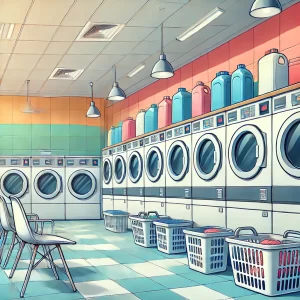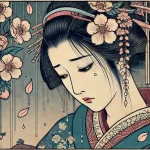KICK BACK [Kick Back]
米津玄師 [YONEZU Kenshi]
Words & Music : 米津玄師 [YONEZU Kenshi]
Kenshi Yonezu is a singer-songwriter born in Tokushima Prefecture wiki in 1991.
Initially, he was active on the internet as Vocalo-P “Hachi.” His 2018 release “Lemon” achieved record-breaking sales, with its music video surpassing 800 million views, the highest record for Japanese pop music.
“Kick Back” was released in 2022 as the opening theme for the TV anime “Chainsaw Man.” Daiki Tsuneta from King Gnu participated as a co-arranger for this song.
It became the first Japanese song to rank on Spotify Global 50 and received a Gold certification from the Recording Industry Association of America (RIAA), the first for a Japanese-language song.
努力 未来 A BEAUTIFUL STAR
doryoku mirai a beautiful star
- 努力(どりょく) [doryoku] : effort
- 未来(みらい) [mirai] : future
This lyric seems to sample from the 2002 song “Sōda! We’re ALIVE YT” by the idol group Morning Musume. Sampling lyrics is somewhat unusual. The song’s style and the artist’s attitude are entirely different, making it interesting.
ランドリー今日はガラ空きでラッキーデイ
randorī kyō wa garaaki de rakkī dei
かったりい油汚れもこれでバイバイ
kattarī abura yogore mo kore de baibai
- ランドリー(らんどりー) [randorī] : laundry
- 今日(きょう) [kyō] : today
- ガラ空き(がらあき) [garaaki] : empty
- ラッキー(らっきー) [rakkī] : lucky
- かったるい(かったるい) [kattaruī] : tiresome
- 油汚れ(あぶらよごれ) [abura yogore] : grease stains
- バイバイ(ばいばい) [baibai] : goodbye
(translation) “The laundry is empty today, lucky day.
Goodbye to the tiresome grease stains.”
Here, “ランドリー / laundry” refers to a coin laundry (laundromat).

“かったりぃ / kattarī” is a very casual way of saying “かったるい / kattarui.”
誰だ誰だ頭の中 呼びかける声は
dare da dare da atama no naka yobikakeru koe wa
あれが欲しいこれが欲しいと歌っている
are ga hoshī kore ga hoshī to utatte iru
- 誰(だれ) [dare] : who
- 頭(あたま) [atama] : head
- 中(なか) [naka] : inside
- 呼びかける(よびかける) [yobikakeru] : call out
- 声(こえ) [koe] : voice
- あれ [are] : that
- これ [kore] : this
- 欲しい(ほしい) [hoshī] : want
- 歌う(うたう) [utau] : sing
(translation) “Who is it, who is it, the voice calling out in my head,
Singing that they want this and that.”
幸せになりたい 楽して生きていたい
shiawase ni naritai raku shite ikite itai
この手に掴みたい あなたのその胸の中
kono te ni tsukamitai anata no sono mune no naka
- 幸せ(しあわせ) [shiawase] : happiness
- 楽する(らくする) [raku suru] : take it easy
- 生きる(いきる) [ikiru] : live
- 手(て) [te] : hand
- つかむ [tsukamu] : grasp
- あなた [anata] : you
- 胸(むね) [mune] : chest
(translation) “I want to be happy, I want to take it easy and live,
I want to grasp your chest with this hand.”
ハッピーで埋め尽くして レストインピースまで行こうぜ
happī de umetsukushite resuto in pīsu made ikō ze
いつかみた地獄もいいところ 愛をばら撒いて
itsuka mita jigoku mo ii tokoro ai o baramaite
アイラブユー貶してくれ 全部奪って笑ってくれマイハニー
airabu yū honsashite kure zenbu ubatte waratte kure mai hanī
努力 未来 A BEAUTIFUL STAR
doryoku mirai a beautiful star
なんか忘れちゃってんだ
nanka wasurechatten da
- ハッピー(はっぴー) [happī] : happy
- 行く(いく) [iku] : go
- いつか(いつか) [itsuka] : someday
- 見る(みる) [miru] : see
- 地獄(じごく) [jigoku] : hell
- いい [ii] : good
- 所(ところ) [tokoro] : place
- 愛(あい) [ai] : love
- 全部(ぜんぶ) [zenbu] : everything
- 奪う(うばう) [ubau] : take away
- 笑う(わらう) [warau] : laugh
- 忘れる(わすれる) [wasureru] : forget
(translation) “Let’s fill it with happiness and go until rest in peace.
Even the hell we once saw is a good place, spreading love.
Say you love me, take everything away and laugh, my honey.
Effort, future, a beautiful star.
I kind of forgot.”
“resuto in pīsu” (rest in peace) is not a common phrase in Japan, but it is used.
4443で外れる炭酸水
yon yon yon san de hazureru tansan sui
ハングリー拗らせて吐きそうな人生
hangurī kojirasete hakisōna jinsei
- 炭酸水(たんさんすい) [tansan sui] : carbonated water
- ハングリー(はんぐりー) [hangurī] : hungry
- 人生(じんせい) [jinsei] : life
(translation) “Carbonated water that misses with 4443,
A life twisted by hunger, about to vomit.”
In the music video, you can see a scene with “4443” on a vending machine at the beginning. It’s a feature where you get another bottle if the numbers match.
Shall we learn some Japanese numbers while we’re at it?
- 1 (いち)[ichi] : one
- 2 (に)[ni] : two
- 3 (さん)[san] : three
- 4 (し・よん)[shi / yon ] : four
「止まない雨はない」より先に その傘をくれよ
yamanai ame wa nai yori saki ni sono kasa o kure yo
あれが欲しい これが欲しい 全て欲しい ただ虚しい
are ga hoshī kore ga hoshī subete hoshī tada munashī
- 雨(あめ) [ame] : rain
- 傘(かさ) [kasa] : umbrella
- 全て(すべて) [subete] : everything
- 虚しい(むなしい) [munashī] : empty
(translation) “Before saying ‘No rain lasts forever,’ give me that umbrella.
I want this, I want that, I want everything, but it’s all empty.”
This is a comment on the common saying that no rain lasts forever.
In the West, where it rains less frequently, fewer people use umbrellas, but in Japan, they are often used.
幸せになりたい 楽して生きていたい
shiawase ni naritai raku shite ikite itai
全部滅茶苦茶にしたい 何もかも消し去りたい
zenbu mechakucha ni shitai nanimokamo keshisaritai
あなたのその胸の中
anata no sono mune no naka
- めちゃくちゃ [mechakucha] : mess
- 何もかも(なにもかも) [nanimokamo] : everything
- 消す(けす) [kesu] : erase
(translation) “I want to be happy, I want to take it easy and live,
I want to make everything a mess, I want to erase everything,
Inside your chest.”
ラッキーで埋め尽くして レストインピースまで行こうぜ
rakkī de umetsukushite resuto in pīsu made ikō ze
良い子だけ迎える天国じゃ どうも生きらんない
ii ko dake mukaeru tengoku ja dōmo ikirannai
アイラブユー貶して奪って笑ってくれマイハニー
airabu yū honsashite ubatte waratte kure mai hanī
努力 未来 A BEAUTIFUL STAR
doryoku mirai a beautiful star
なんか忘れちゃってんだ
nanka wasurechatten da
- ラッキー(らっきー) [rakkī] : lucky
- 良い(いい) [ii] : good
- 子(こ) [ko] : child
- 天国(てんごく) [tengoku] : heaven
(translation) “Let’s fill it with luck and go until rest in peace.
I can’t seem to live in a heaven that only welcomes good children.
Say you love me, take everything away and laugh, my honey.
Effort, future, a beautiful star.
I kind of forgot.”
ハッピー ラッキー こんにちはベイビー
happī rakkī konnichiwa beibī
(ハッピー ラッキー こんにちはベイビー)
happī rakkī konnichiwa beibī
良い子でいたい そりゃつまらない
ii ko de itai sorya tsumaranai
(あなたの未来 そりゃつまらない)
anata no mirai sorya tsumaranai
ハッピー ラッキー こんにちはベイビーソースイート
happī rakkī konnichiwa beibī sō suīto
(ハッピー ラッキー こんにちはベイビーソースイート)
happī rakkī konnichiwa beibī sō suīto
- こんにちは [konnichiwa] : hello
- ベイビー(べいびー) [beibī] : baby
(translation) “Happy, lucky, hello baby
(Happy, lucky, hello baby)
I want to be a good child, but that’s boring
(Your future, that’s boring)
Happy, lucky, hello baby, so sweet
(Happy, lucky, hello baby, so sweet)”
努力 未来 A BEAUTIFUL STAR
doryoku mirai a beautiful star
なんかすごい良い感じ
nanka sugoi ī kanji
- なんか [nanka] : kind of
- すごい(すごい) [sugoi] : very
- いい感じ(いいかんじ) [ī kanji] : good feeling
(translation) “Effort, future, a beautiful star
Kind of a very good feeling.”
“なんかいい感じ / nanka ii kanji” is a very colloquial phrase, but it’s often used by people of all ages.
While “very” is usually “すごく / sugoku,” using the adjective “すごい / sugoi” as an adverb is widespread and quite common.
The music seems to strongly reflect the style of King Gnu’s Tsuneta. The singing style includes a bit of a rolled tongue. This is a characteristic of Yonezu, but in this song, it’s especially rough and masculine.
It might be challenging to mimic his singing style, but I hope you can get familiar with some words.
The term “kickback” in the title refers to the phenomenon when the chainsaw blade becomes uncontrollable and bounces back toward the user. This might indicate that the man in these lyrics is a dangerously edgy character.
Watching the anime “Chainsaw Man” might reveal more insights.
Well, the Paris Olympics have opened.
Kenshi Yonezu created the official support song for public broadcasting during the 2020 Tokyo Olympics, a song “Kite” by Arashi.
Japan’s public broadcaster produces official support songs for athletes at each Olympics.
Starting tomorrow, I will introduce songs often used as support songs for sports, in line with the Olympics.
Thanks for reading! Feel free to comment if you have any feedback or questions.
Follow me on X.



